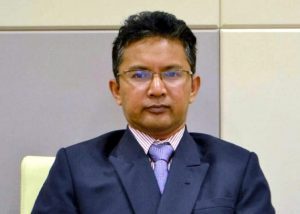
Opinion: What Is This Lecturer Teaching? A Wake-up Call for UUM and Malaysia
5 Aug 2025 • 10:00 AM MYT

Image Source: Suara Merdeka
Not too long ago, the High Court delivered a clear message when it ruled in favour of Hannah Yeoh, putting to rest a defamation case that dragged on for eight years. It wasn’t just a personal victory for her it was a powerful statement against those who use religion as a political weapon. Many Malaysians, regardless of race or faith, saw that verdict as a win for decency, truth, and our fragile yet precious social harmony.
And yet, here we are again.
This time, Universiti Utara Malaysia (UUM) lecturer Dr. Kamarul Zaman Yusoff filed a RM2 million defamation suit against Siti Fatihah Salahuddin, daughter of the late Salahuddin Ayub a figure known for his integrity and service. The court dismissed the case and ordered the plaintiff to pay RM13,000 in costs. The judge found her comments, made in response to Dr. Kamarul’s post, justified and truthful.
This outcome raises important questions: What kind of public discourse are we encouraging? And more crucially, what standards do we expect from those entrusted with shaping young minds?
Dr. Kamarul is not merely a private citizen. As a university lecturer, he holds a position of influence and responsibility. When educators repeatedly engage in highly public and polarising legal battles that are subsequently thrown out, the concern shifts from personal opinion to professional conduct.
From Hannah Yeoh to now the daughter of a late respected leader, this trend of initiating litigation over political or religious disagreements appears unproductive and unnecessarily adversarial. What values are being promoted when such actions overshadow academic contributions?
It is important that universities and especially public ones uphold high standards of professional integrity. When academic voices venture into public commentary, particularly on sensitive societal matters, their words carry weight. This calls for a balance between freedom of expression and responsibility, especially when statements risk causing unnecessary public tension.
Universities in Malaysia should reflect on how their institutions are perceived when such controversies arise. Are we fostering open, respectful dialogue and critical thinking? Or are we enabling divisive narratives that confuse rather than clarify?
It may be time for institutions like UUM to review how such repeated public engagements by faculty are handled. Public trust in our education system can be strengthened when there is transparency and accountability in upholding academic integrity.
No one is above scrutiny including academics. But criticism must be handled within professional standards and guided by facts. When courts consistently reject defamation suits, it is a signal that perhaps the focus should return to teaching, research, and building understanding in our plural society.
Let’s be clear. Freedom of speech and academic freedom are essential to a healthy democracy. But they must also be grounded in honesty, ethics, and a sense of service to the nation.
Justice, once again, has spoken. Now, it’s time for our institutions to listen.
If public intellectuals and educators choose to step into the public square, they must do so with thoughtfulness not only because of their right to speak, but because of their duty to lead.

Uum didnt take action like they endorse it. Such a pity the counsellor also close one eye.
ReplyDelete